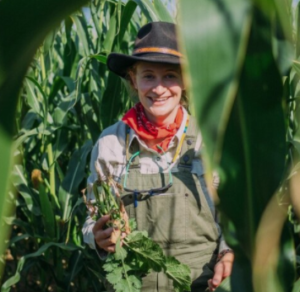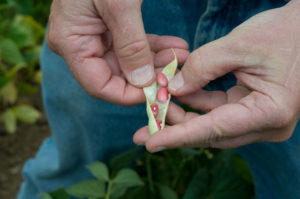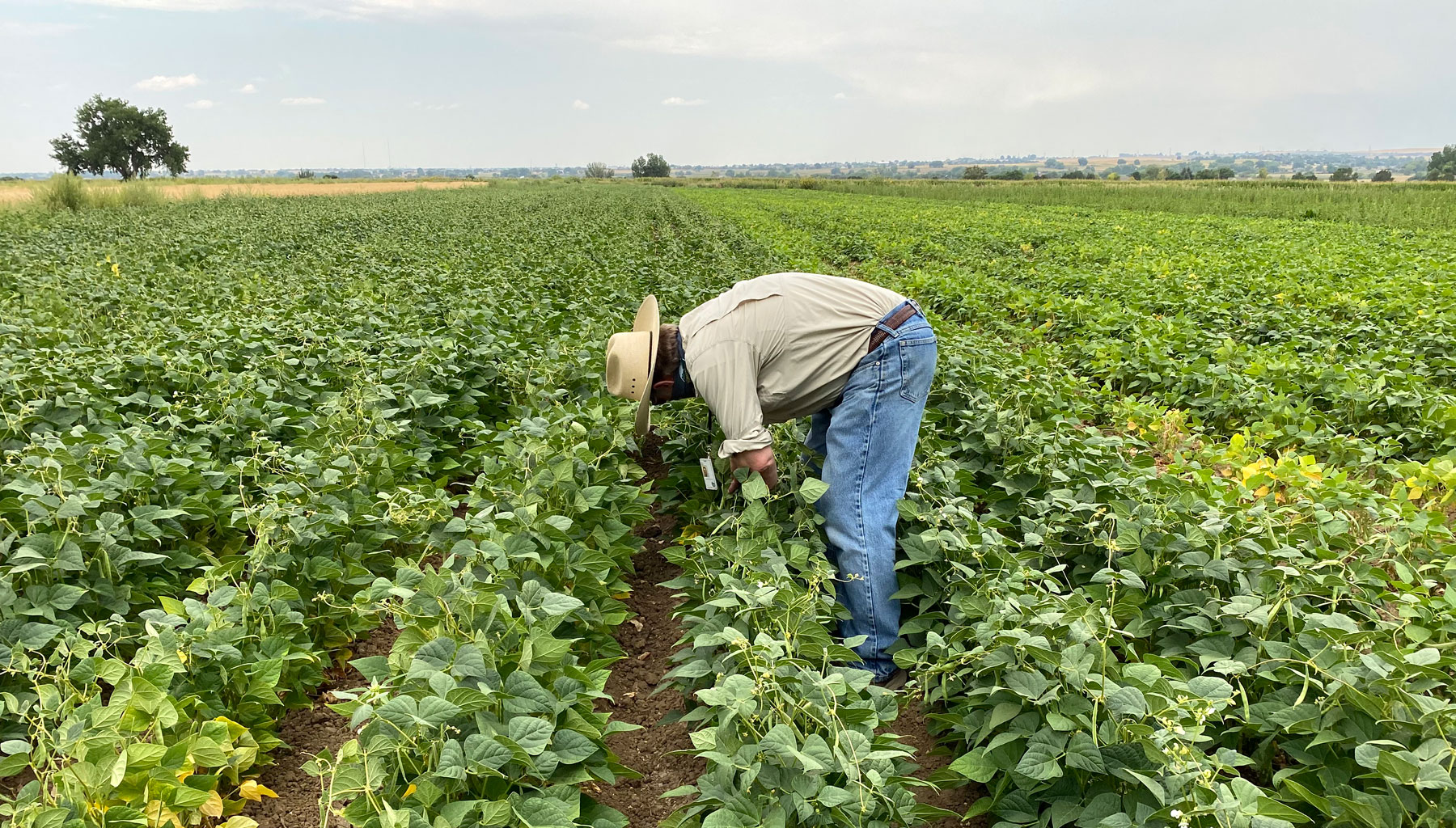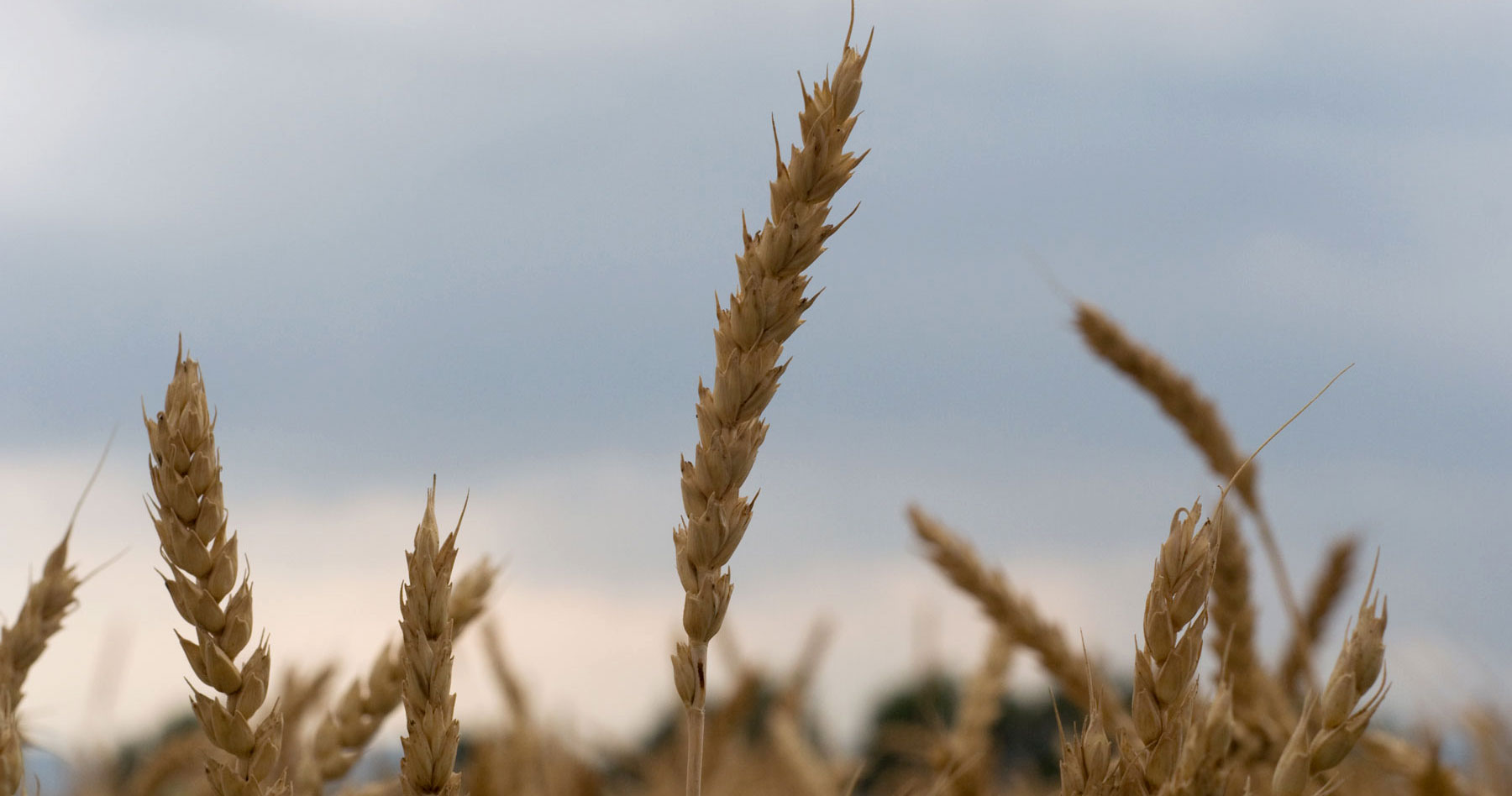On a recent weekday a mile from Boulder County’s straightline eastern border, Blake Cooper kneels to pick a dry bean pod in an expansive field of crops. The smoke from Colorado’s wildfires casts the Front Range in a dull haze 12 miles due west as he lifts the plant’s leaves exposing its plethora of bean pods under its skirt of leaves.
Blake, a Boulder County Resources Manager, is checking up on a plot of approximately 4 acres on Boulder County-controlled land farmed by large-scale farmer Jules Van Thuyne where the county, Jules and the Boulder agriculture nonprofit Mad Agriculture are testing the yield and performance of non-genetically modified crops.
This plot has a variety of dry beans: Cuban black beans, cranberry beans, cayenne red beans.

Dry beans make a great candidate for commercial crop development because they store relatively easily, people love them, they add vital nutrients to the soil such as nitrogen and, in general, mellow the ground, Blake explains. In fact, pinto beans spread out across 40 acres on a private farm land behind us. Depending on the weather, the beans will be ready to harvest in about six weeks.

A second-generation farmer on the land here, Jules farms a total of an approximate 1,800-acre mix of Boulder County-owned and private land.
He’s among a handful of farmers who farm on the 25,000 acres of farmland that Boulder County either owns or has conservation easements for. These farmers face a drastic new reality with the 2016 mandate from Boulder County that requires them (after an extension) to fully transition from genetically modified crops, by 2021 for corn and 2025 for sugar beets.

A few miles away on Boulder County-controlled land farmed by county commercial farmer Dan Lisco, Blake shows us a test plots of four varieties of spring wheat. The county currently grows winter wheat, but the higher-protein more gluten-rich spring wheat serves as prime bread flour.
Mad Ag, who has a mandate to help the farmers find alternative crops that will sustain their businesses and fit the new county’s regulations, is piloting a variety of crops on Boulder County land. The crops the group is testing with farmers include spring wheat, sorghum, dry beans, field peas and oats, says Mad Ag farm planner Rebecca Baldwin-Kordick.

Developing commercial viable alternative crops represent just one key issue in executing a successful transition from GMO crops — the other, big one, includes developing local markets for the products, so the farmers have somewhere to sell the yield they produce. (Also, there’s the thorny sugar beet dilemma, which we’ll cover in another story).
The transition
Blake, Mad Ag, farmers of Boulder County-controlled farmland — in theory, all of us — hope these crops, among others like spring wheat, can become commercially viable here, to replace corn and sugar beets that come from genetically modified seeds and that occupy a large portion of the county’s commercial cropland.
In 2016, Boulder County commissioners voted to a five-year phase-out of the use of GMO crops on County-controlled farmland — which includes land the county owns outright and leases to farmers and land it controls through conservation easements. Of the county’s approximately 107,000 acres of open space — nearly a quarter of its total acreage — the county controls about 25,000 acres.

For farmers on county-controlled land with fine-tuned commercial operations built around these GMO crops, this came as a big challenge, one that requires refashioning operations refined over decades, testing the commercial viability of new crops, refashioning soil and more. A daunting task.
The original deadline commissioners set for the phase-out had a deadline of the end of 2019 for eliminating GMO corn and 2021 for sugar beets. In 2019, with Mad Ag’s advocacy, among others, the county extended the deadline for corn to the end of 2021 and for beets the end of 2025.
Testing
On the spring wheat test plots, Blake expresses a bit of pleased surprise. “Looking a lot better than I thought; thought it was going to be flat,” says Blake Cooper pointing at one of the spring wheat variety test plots as it stands into the distance on land farmed by Dan Lisco.
The county is testing four varieties of spring wheat on the plot we reviewed: Czech spring wheat, red fife, rouge de Bordeaux and kamut (a wheat used to make pasta).








